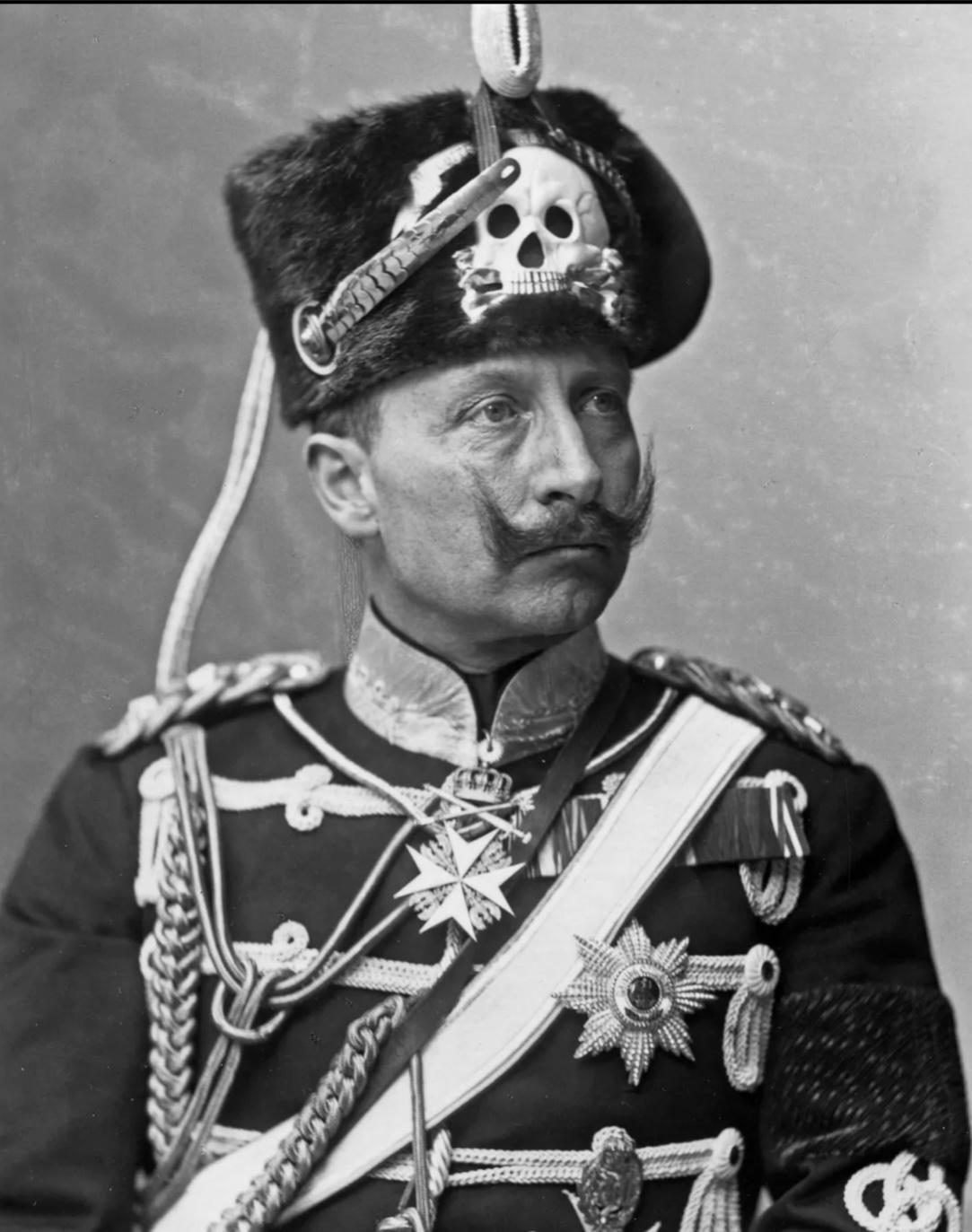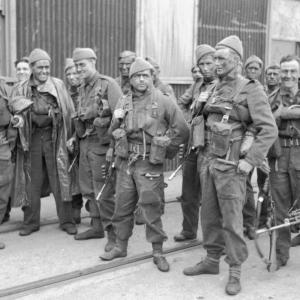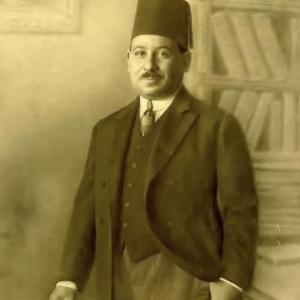
Kaiser
Kaiser Wilhelm II was born on January 27, 1859, in Berlin. He was the eldest grandchild of Queen Victoria of the United Kingdom and the son of Frederick III of Germany and Princess Victoria of the United Kingdom. From birth, Wilhelm faced a serious physical challenge—he suffered from Erb’s palsy due to complications during birth, which left his left arm withered and largely useless. This physical condition affected his sense of identity and shaped his strong-willed, often defensive personality.
Raised between British liberal values and Prussian militarism, Wilhelm developed a complex character. Though his mother was deeply influenced by British ideals of constitutional monarchy and liberal reform, Wilhelm gravitated more toward the conservative, authoritarian traditions of Prussia. His relationship with his parents was strained, particularly with his mother, whose British ideals he came to resent. Wilhelm’s education was rigorous, and he was well-read and intelligent, but he was also emotional, impulsive, and obsessed with matters of status and honor.
Wilhelm became emperor of Germany and king of Prussia on June 15, 1888, following the death of his father, Frederick III, who ruled for only 99 days. Wilhelm was just 29 years old when he ascended the throne. Almost immediately, he began reshaping the German government in his own image. One of his first significant acts was to dismiss Otto von Bismarck, the Iron Chancellor who had unified Germany and dominated its politics for nearly two decades. Wilhelm felt Bismarck’s policies were too cautious and outdated and wanted to assert his own authority, especially in foreign affairs.
He pursued an ambitious and aggressive foreign policy known as Weltpolitik, or "World Policy." This strategy aimed to expand Germany’s influence across the globe through the acquisition of colonies, the building of a powerful navy, and the assertion of Germany as a leading world power. Wilhelm was fascinated by the British Empire and wanted Germany to have its own equivalent status. His naval expansion, particularly under Admiral Alfred von Tirpitz, alarmed Britain and contributed to a growing naval arms race between the two nations. His flamboyant speeches and unpredictable diplomatic behavior often strained relations with other powers.
Wilhelm’s foreign policy was marked by a series of blunders. In 1896, he sent a telegram to Paul Kruger, the president of the Transvaal Republic, congratulating him on resisting British forces—a move that angered the British government. In 1908, during an interview with the British Daily Telegraph, Wilhelm made several damaging comments about Britain and other powers, causing a scandal that undermined his credibility. These incidents, along with his support for Austria-Hungary and other aggressive stances, contributed to the rising tensions in Europe that would eventually lead to the outbreak of war.
By 1914, Europe was divided into opposing alliance systems and rife with nationalist tensions. After the assassination of Archduke Franz Ferdinand of Austria-Hungary, Germany under Wilhelm offered Austria a "blank check" of support, encouraging it to take a hard line against Serbia. This decision set off a chain reaction that led to the outbreak of the First World War. Though Wilhelm believed he was acting to protect German interests, his decisions helped turn a regional crisis into a global conflict.
During the war, Wilhelm’s role as supreme warlord diminished. The military command, particularly General Paul von Hindenburg and General Erich Ludendorff, assumed effective control of German policy. Wilhelm became more of a ceremonial figure, isolated from real power. As Germany faced growing losses, economic collapse, and civil unrest, calls for Wilhelm’s abdication intensified.
In November 1918, as revolution spread through Germany and defeat seemed inevitable, Wilhelm fled to the Netherlands. On November 9, he officially abdicated the throne, bringing an end to the German monarchy. He lived the rest of his life in exile at Huis Doorn, a manor house in the Dutch countryside. He remained politically interested, but his influence was gone. Wilhelm died on June 4, 1941, during World War II.
Wilhelm’s legacy remains deeply debated. While he was not solely responsible for World War I, his erratic leadership, militarism, and diplomatic miscalculations certainly helped lead Europe into catastrophe. He represented the last phase of autocratic rule in Germany, a ruler caught between old-world imperial ambition and the emerging realities of modern, democratic states. His abdication marked the collapse of the German Empire and the birth of the Weimar Republic, and with it, a new and unstable chapter in German history.










